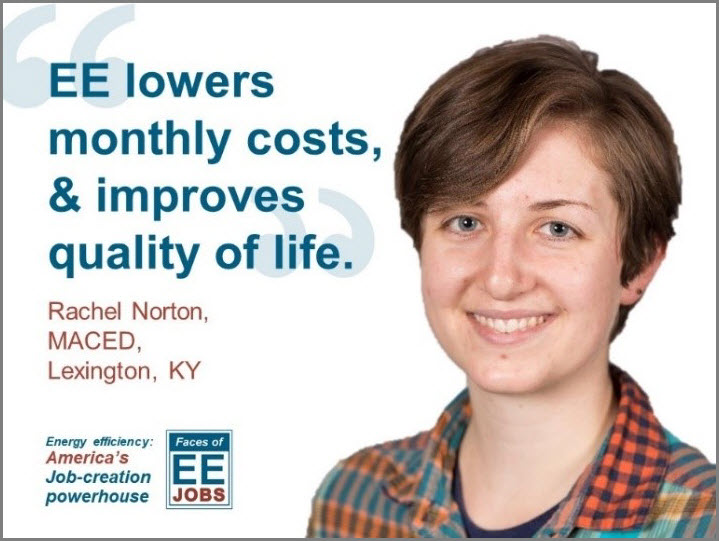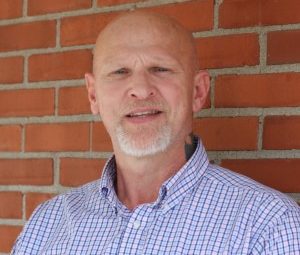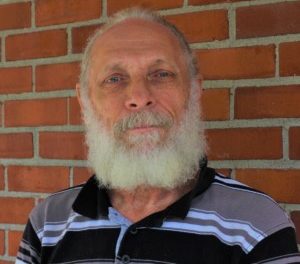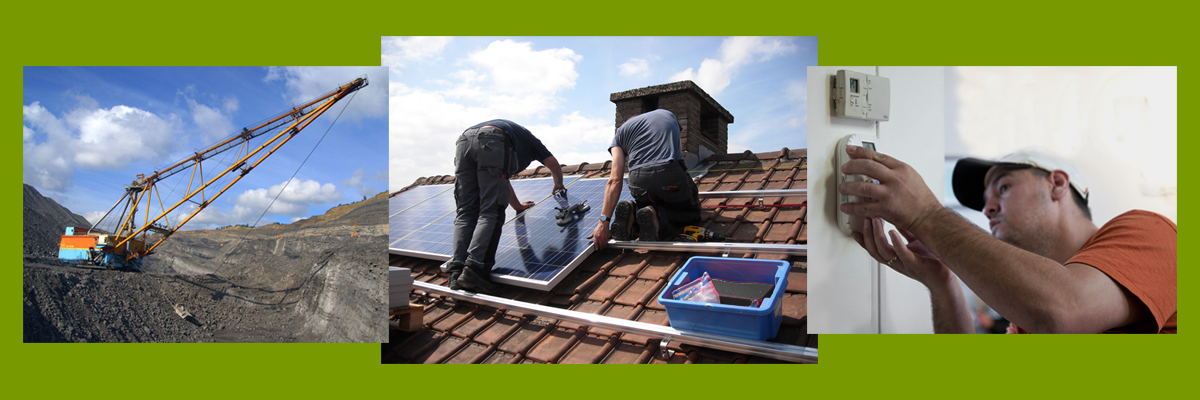by Pat Stanton
“I will always be a coal miner at heart,” Scott Shoupe says, “but we have to acknowledge where it is and the true impacts of coal for the future. I want to take my wealth of knowledge and bring change to my communities.”
Former coal workers like Scott are finding new, fulfilling jobs in what some might view as an unexpected industry: clean energy. Coal jobs are projected to decrease by 0.4% per year over the next ten years (while total U.S. jobs gain 0.6% annually.[i]) With coal jobs waning, skilled workers are joining different parts of the energy sector, such as energy efficiency (EE). U.S. efficiency jobs could see a 7.8% increase in 2019 alone.[ii]
Historical Evolution
The transition from coal to clean jobs is part of a natural shift. History provides rich examples of similar evolutions. City lamplighters lost their jobs as electric lights became available. Jobs harvesting and delivering ice for “ice boxes” transformed as refrigerator manufacturing, sales and installation took over.
Now coal jobs are yielding to market forces. Clean energy can provide lower prices, greater energy security, and improved air quality. Even in communities where coal has been a source of livelihood for decades, many residents welcome clean energy jobs.[iii]
As the need for clean energy employees grows, finding qualified workers can be a challenge for owners and managers. Energy efficiency companies need skilled, qualified workers to reach their full potential. Some EE businesses struggle to find workers with the desired levels of experience, training, and technical skills. The good news is that opportunities for workforce development are popping up around the country.
Solutions: Appalachian Region
The Mountain Association for Community Economic Development (MACED) is helping to fill the hiring gap. MACED is a nonprofit that offers an internship program for energy efficiency job training.
Chris Woolery, a residential energy coordinator at MACED, explains how former coal workers can help: “Ask any HVAC or insulation company hiring manager. They will tell you how hard it is to find folks who are willing and able to do difficult labor in attics and crawl spaces. They are subject to extreme temperatures, confined spaces, difficult mobility, low lighting, hostile critters, [and] potentially toxic environments. It just so happens that underground coal miners are used to all of that kind of stuff, and don’t bat an eye.”

Chris Woolery has been with MACED for over seven years.

Rachel Norton works to promote residential energy efficiency.
As workers make the shift from coal to clean, additional previously-acquired skills serve them well. As in mining, EE jobs involve operating equipment, working as part of a team, and adapting to unanticipated circumstances.
New Energy Interns Grapple with Change, Aim for Leadership
MACED’s New Energy Internship program makes the transition to clean jobs a reality. The program was featured in Yes! magazine; its first two interns are profiled there (former coal workers Frank Morris and Randall Howard). Their stories are fascinating. My team reached out to two men who followed their path to MACED.
With 20+ years working in the coal industry, Scott Shoupe watched jobs vanish in his hometown of Cumberland, Kentucky. A longtime supporter of clean energy, he joined MACED’s Hazard office in October, 2018. Scott learned to perform energy audits and efficiency upgrades.
“I want to create jobs and employ men and women with good pay and benefits,” Scott says. “I think this is the perfect opportunity to be on the ground floor to learn and teach that our economy can rebound and prosper with energy conservation. I plan to offer others the same opportunity MACED is providing me when I start a business.”

Scott Shoupe of Harlan County

John Craft of Perry County
John Craft, a New Energy Intern, worked in underground mining for 13 years. He feels the time has come to transition to cleaner energy. His longstanding interest in conservation and renewable energy led him to MACED. John says he learned circuitry and digital controls while working in the coal industry. These skills became an asset in his new position as an efficiency auditor for churches, community organizations, and small businesses. His work now is more interesting, more satisfying, and involves more innovative technology.
John particularly enjoys seeing customers’ excitement over energy savings. He plans to start a consulting business focusing on HVAC, indoor air quality, and LED lighting retrofits. “It’s a big deal if you can save someone $1000 on their energy bills over a year,” says John. “It helps a child with severe asthma. It helps with the stain on infrastructure in Appalachia. It’s good for the security of the nation to run something other than a fossil fuel.”
Thank you to MACED staff and coal industry veterans for your excellent work, and for sharing your stories. Everyone is invited to meet more U.S. EE pros and see vital statistics in Energy Efficiency Jobs in America. If you or someone you know works in the industry, we invite you to join the Faces of EE initiative. Please help us spread the word about the importance of our thriving EE industry!
–Pat Stanton is E4TheFuture’s Director of Policy
